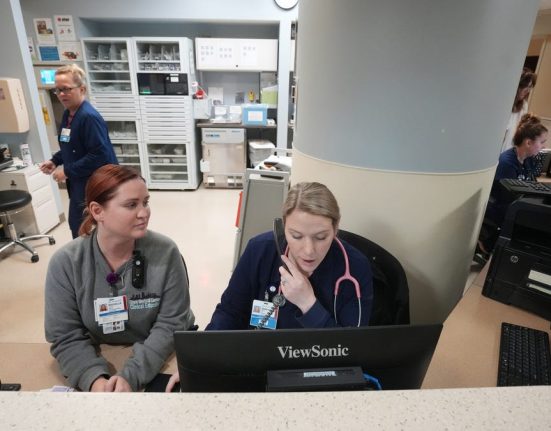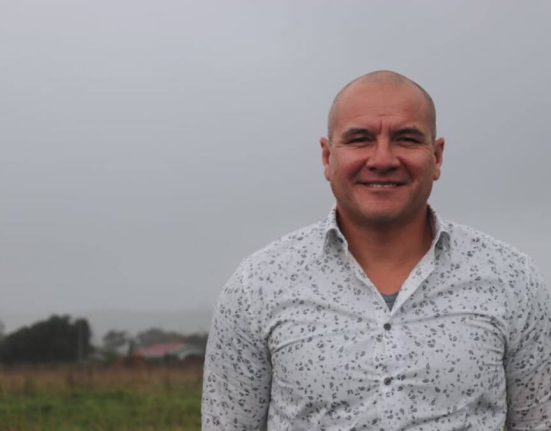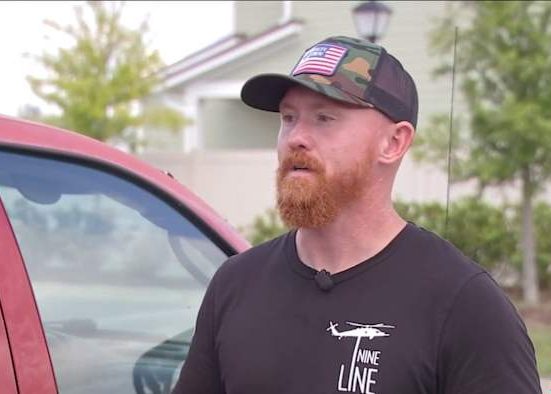Editor’s note: This is the second installment in a four-part series highlighting major Jefferson County organizations helping those with mental health issues. The next story will look at the work of Trinity Health System, particularly its behavioral health division.
STEUBENVILLE — The Centers for Disease Control and Prevention claims the U.S. is undergoing a mental health crisis across all age groups, according to recent data.
It’s a trend reportedly observed prior to the COVID-19 pandemic, which has exacerbated the issue.
In 2023, one in five U.S. adults experienced symptoms of anxiety and depression, the CDC states. A separate study found that, in 2023, two in five high school students reported experiencing chronic sadness or hopelessness.
A 2019 report from the Congressional Joint Economic Committee found that deaths from drugs, alcohol and suicide doubled between 2000 and 2017, in conjunction with the opioid crisis. These so-called deaths of despair are “often associated with mental distress (and) continue to impact families and communities socially, emotionally and economically long after they occur,” the CDC states.
The CDC claims American youth are exceptionally affected by the mental health crisis, with persistent feelings of sadness or loneliness increasing about 40 percent among students in the decade before the pandemic, and individuals ages 10 to 24 accounting for 15 percent of all suicides — a 52 percent increase since 2000.
Amid such circumstances, a number of Jefferson County organizations are working hand-in-hand to help individuals experiencing mental health challenges obtain treatment and support they need. Critical links in that chain include 911 dispatch and behavioral health providers who present essential services for the community.
Ensuring mental health services are funded and running as they should is the Jefferson County Prevention and Recovery Board, which aspires to help citizens “achieve personal health, wellness and enhanced quality of life,” as outlined in its vision statement.
Although it doesn’t provide services, the JCPRB contracts with certified agencies to provide services to Jefferson County residents. Those services are multi-faceted, covering mental health, vocational support, housing and addiction prevention, treatment and recovery.
Directing the JCPRB is a board composed of clinicians, mental health or substance abuse service consumers and relatives of consumers. Board members vote on funding allocation and oversee quality assurance of services through regular reviews and analysis.
Funding for services comes primarily from state and federal grants, though key to obtaining those grants is the ability to provide a local match. A significant portion of the JCPRB’s revenue is drawn from the organization’s 0.5-mill property tax levy.
Executive Director Bill Holt said the organization’s main role is funding services, though it does provide quality assurance and regulatory oversight.
Although it’s a high-demand field, crisis work tends to suffer from staffing shortages due to its difficult nature, Holt said. That demonstrates the importance of the JCPRB, which can help ensure adequate staffing for resources like call centers and walk-in services.
The JCPRB contracts with Coleman Health Services to provide 24/7 phone crisis support, which the Jefferson County 911 Center may utilize for mental health-related calls. Additionally, the board contracts with Coleman to perform involuntary commitment assessments for individuals experiencing issues like hallucinations or episodes of psychosis.
“We’re statutorily charged with ensuring those people get assessed to see if they need to be committed to the hospital involuntarily,” Holt said. “So, Coleman provides those services in the community for us, and we ensure that they have the appropriate clinical checks and balances in place (for next steps).”
During normal business hours, Coleman typically has staff available to go on scene — typically the emergency room of Trinity Medical Center West — and perform an assessment. The person would then either be discharged or admitted to Trinity’s in-patient mental health unit.
“We try and have regular meetings with Coleman, Trinity and us to ensure that process is working well,” Holt said.
In practice, that process can be complicated by bed availability and the acuity of a person’s symptoms, which may require relocation to a state hospital, Holt said.
“It’s a complicated process. What we try to ensure is that everybody’s civil rights are being respected. … There’s checks and balances in place to ensure (that.)”
Not only is the emergency room generally a poor venue for services, it can be the most costly, Holt said. Thus, for mental health and substance use disorders, prevention is key, and a crisis isn’t a necessary prerequisite for receiving help.
For those not in a crisis situation, the JCPRB contracts with two primary agencies to ensure every Jefferson County resident has access to services: Family Recovery Center for substance use and Coleman for mental health.
The JCPRB is concerned with ensuring Coleman has a full array of mental health services available to Jefferson County residents. That includes supportive employment to aid individuals with more serious and persistent mental disorders, or payeeship to help individuals manage their finances and maintain stability.
The JCPRB finances 20 units of mental health housing, operated by Coleman, so individuals with more significant mental health disorders can remain safely in the community.
“You hear about homeless individuals, something like 90 percent of them either have substance use disorder or serious mental illness,” Holt said. “So, keeping individuals in housing and keeping that stability allows them, a lot of times, to get the help that they need …”
Guaranteeing access to outpatient therapy and counseling services is critical, Holt said, noting such services keep subacute mental health or substance use cases from over-burdening law enforcement or EMS providers.
The JCPRB’s goal is to ensure access to services regardless of a person’s financial or insurance status. If a person doesn’t have insurance or their insurance doesn’t cover a needed service, the JCPRB may step in to cover the cost, occasionally for a small fee based on income.
In Holt’s estimation, mental health services in Jefferson County are running pretty smoothly. In particular, he said, “It’s less about gaps being filled and more about filling them better.”
Ideally, Holt said, the county would have 24/7 mobile crisis coverage — professionals that respond directly to a crisis and provide immediate mental health support and resources.
That goal is still being worked toward, Holt said, but Coleman offers something similar for children and young adults up to age 21, as well as their families, through Mobile Response and Stabilization Services, which operates weekdays from 9 a.m. to 5 p.m.
Holt said of MRSS: “The goal is to come in, try to resolve the crisis situation for the child and family, connect them with additional services and support and continue to follow up with them … to make sure it’s resolved.”
Freeing individuals from a pattern of mental unwellness is the ultimate aim, Holt said, and agencies can always do better.
“Once you get people out of a situation, you can get them support that can break the cycle of addiction or mental illness that leads to a lot of other problems. … Having mobile mental health services would be a big benefit. Someone calls and reports, the police can arrive and call for a mental health response team, assess, maybe get people to services (and) break that cycle that seems to repeat itself over and over.”







